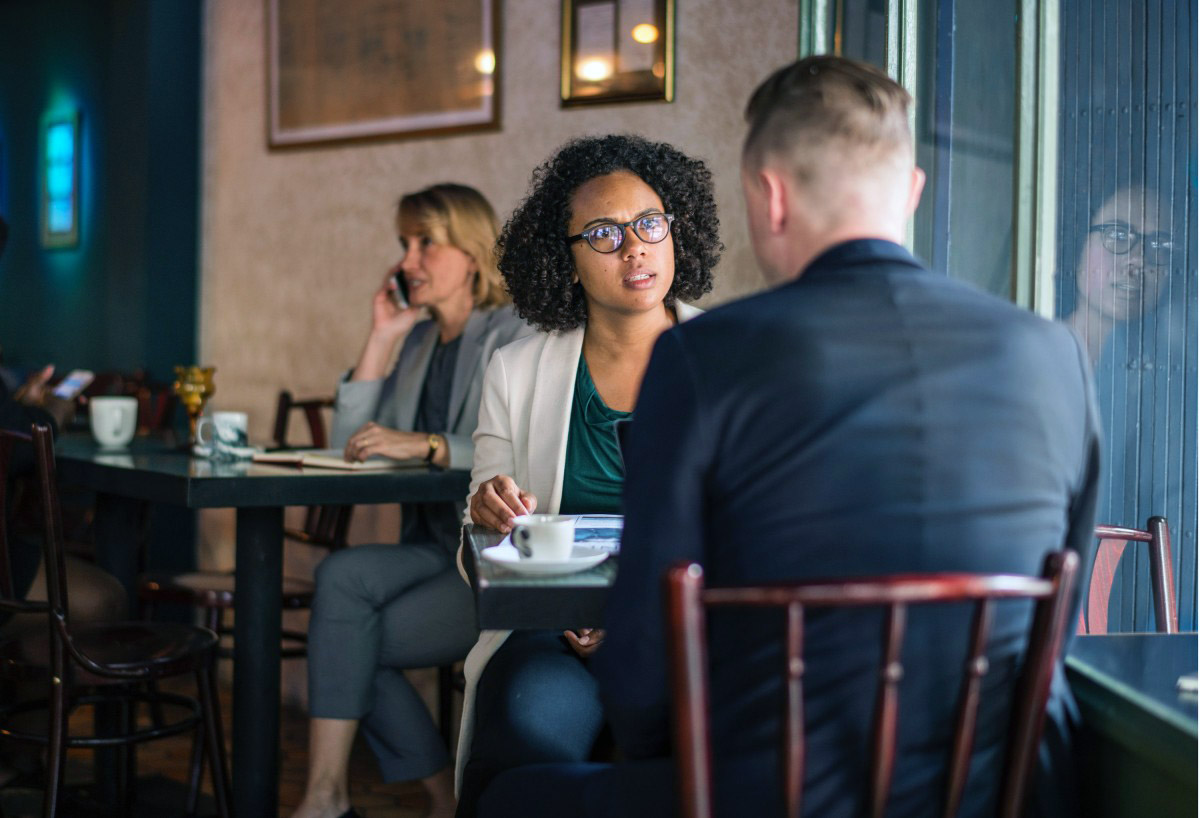A few weeks back, I did a full day of group therapy with the American Academy of Psychotherapists. When I say “full,” I mean nine hours of deep diving into break ups, miscarriages, divorces, deaths, and family history.
I’m glad I threw myself in the ring. The Tibetan Buddhist monk Yongey Mingyur Rinpoche calls pushing past our edge, “adding wood to the fire.” But damn, I didn’t expect to be burned so quickly.
Minutes into one of the sessions, I shared that I felt disconnected from three women who were talking about a common experience. One of the women responded that she didn’t want to hear about “a man’s problems.”
I’d been trying to be honest and vulnerable, as the group therapist had instructed. What she said made me feel even more disconnected and a little ostracized.
Part of me wanted to explain what I’d meant so she’d know I was a feminist and one of the “good guys.” But another part remembered that she’d mentioned that she’d recently gone through a divorce. She was probably projecting on to me her resentment towards her ex-husband or maybe even all men.
I decided to listen to this more aware and skillful part. I let the moment pass and the group’s conversation shifted towards processing her pain and resentment.
I tell this story to bring up one of mindfulness’s benefits that often gets overlooked. Yes, mindfulness meditation does all the things we read about in the New York Times. It increases focus, decreases anxiety, and turns up the vibrancy of life. (I wrote about these benefits in my free ebook, How to Get Out of Your Head.)
But the deeper reason I’m obsessed with it is that it also helps me show up more fully, especially with other people, over and over again.
What do I mean by showing up “fully?” When I’m mindful, I’m less quick to judge and compare. I’m more willing to say what I feel when the time feels right. I’m less in my head, planning what to say, taking things personally. Instead, I listen—not only to the other person but also to what’s going on inside of me.
See, the reason we don’t listen very well is because we don’t want to feel what’s going on inside of us. To escape boredom, we change the subject. To escape discomfort, we try to make the other person feel better by giving them advice. To escape feeling lonely, we talk about ourselves to try to get attention.
During a conversation, I’ve found it helpful to keep part of my attention on the movement of my breath or how my body feels. When I do this, my mind is less prone to spin off into things I want to say to impress or make the other person feel better.
I’ve also found it helpful to try to imagine what the other person is feeling in the moment as their talking. I try to be curious. Is their body tense? Is their voice raised? Is their breathing short?
Another tip: ask “dumb” questions, as I’ve written about before. If someone references something I don’t know about, I ask them to explain. If I don’t know where someone lives, where they grew up, what they do for work, whether they’re happy, I ask.
You’d be surprised by how many people are walking around dying to be asked about the most important parts of their lives. People will light up just because you put the effort into getting out of your own head to ask them to explain something they just said.
When I’m in the zone of mindful listening, it feels like everything I need is available to me—nothing is missing. I can always ask a question about something I’m curious about or don’t understand. No matter what, I can always say, “I’m feeling this way,” or “When you said that, it made me feel this.”
It’s like how the trumpet player Wynton Marsalis describes playing jazz: “There’s no right or wrong, just some choices that are better than others.”
The bottom line: when in doubt, listen—both inside and out.
I don’t want to pretend that listening is easy. This capitalist society of ours leaves many of us feeling disconnected, vulnerable, and alone. We’re pressured to lean on one person, a romantic partner, for connection and support. Community is undervalued and even seen as a threat—“socialism.”
“There’s no such thing as society. There are individual men and women and there are families,” said Margaret Thatcher, one of the most cold-blooded capitalists that ever lived.
So many of us are dying for deep, real attention. Facebook and Instagram don’t cut it. In fact, according to studies, social media makes us feel lonelier.
The writer and Zen meditation teacher Natalie Goldberg once told me that, after a meditation retreat, we want to tell everyone about our experience because we’re so vulnerable. But, she said, if we want our partner, best friend, whoever to understand what we’ve been through, we should just listen, and they’ll know—they’ll get it.
Reminds me of that Maya Angelou quote: “I’ve learned that people will forget what you said, people will forget what you did, but people will never forget how you made them feel.”
Listen more, and odds are you’ll be listened to more.
Free ebook on mindfulness meditation
My ebook, How to Get Out of Your Head, will help you start or stick with a regular meditation practice. Get it for free here.
Listen to my podcast Meditation for the 99%
On Meditation for the 99%, I take meditation out of faraway monasteries, expensive retreat centers, and Corporate America, and bring it to work, relationships, and, especially, politics. Listen everywhere podcasts are available.
